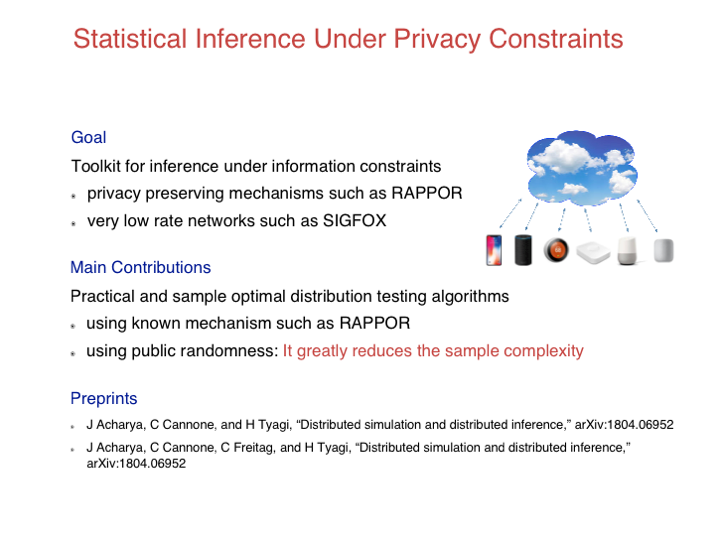Independent samples from an unknown probability distribution p on a domain of size k are distributed across n players, with each player holding one sample. Each player can communicate ` bits to a central referee in a simultaneous message passing model of communication to help the referee infer a property of the unknown p. What is the least number of players for inference required in the communication-starved setting of l < log k? We begin by exploring a general simulate-and-infer strategy for such inference problems where the center simulates the desired number of samples from the unknown distribution and applies standard inference algorithms for the collocated setting. Our first result shows that for l < log k perfect simulation of even a single sample is not possible. Nonetheless, we present next a Las Vegas algorithm that simulates a single sample from the unknown distribution using no more than O(k/2^l) samples in expectation. As an immediate corollary, it follows that simulate-and-infer attains the optimal sample complexity of Θ(k^2/2^lε^2) for learning the unknown distribution to an accuracy of ε in total variation distance.
For the prototypical testing problem of identity testing, simulate-and-infer works with O(k^(3/2)/2^lε^2) samples, a requirement that seems to be inherent for all communication protocols not using any additional resources. Interestingly, we can break this barrier using public coins. Specifically, we exhibit a public-coin communication protocol that accomplishes identity testing using O(k/√2^lε^2) samples. Furthermore, we show that this is optimal up to constant factors. Our theoretically sample-optimal protocol is easy to implement in practice. Our proof of lower bound entails showing a contraction in χ^2 distance of product distributions due to communication constraints and maybe of interest beyond the current setting.
